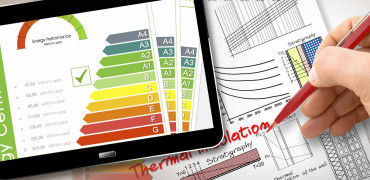We’ve created our latest free, CPD Guide, this time focusing on the importance of embodied carbon and will also be hosting a special CPD-Accredited webinar on Tuesday the 1st August 2023.
Reducing the environmental impact of the built environment has become a key priority as the nation looks for ways to achieve net zero.
Buildings are a significant contributor to man-made emissions, so it is imperative that we better understand the main causes of these emissions and work to reduce them.
Each building generates emissions throughout its lifetime, from design, build, use and end-of-life disposal.
While operational emissions from the built environment are significant, they do not account for the emissions generated through the construction process; the manufacture, transportation, and installation of its component parts or, for the disposal of these at the end of the building’s useful life.
These emissions are known as Embodied Carbon.
This webinar examines the impact embodied carbon considerations have on specification decisions
Carbon, carbon and carbon
One of the driving forces behind the growing interest in the carbon impact of buildings is client demand, who are focusing more on carbon measurement and abatement across their organisations.
As a result, public and private sector building owners and tenants are committing to organisational environmental goals, which extend to the buildings they occupy and operate.
However, despite the growing interest in measuring and addressing carbon emissions from the built environment, there is currently limited UK legislation and guidance.
While we have become familiar with the concept of operational carbon and energy efficiency, embodied carbon and its impacts on specification and design are less clear.
As a result, construction professionals, including engineers face the challenge of meeting client expectations at a time when there is often limited data available to them to make precise calculations.
This CPD guide and webinar will examine the impact embodied carbon considerations have on specification decisions, looking at some of the critical areas designers and installers should consider and questions they should ask when making decisions around building services.
Upgrade to net zero
It is worth reminding ourselves that over 80% of all the buildings that we currently occupy, whether for work, recreation or as homes, will still be in use by the time we reach get to 2050 – the net zero target.
Even if we wanted to, we cannot replace these with super-efficient new buildings, not least because the carbon emissions emitted from knocking down the old building and putting up a new one would be immense.
So, improving the energy efficiency and performance of existing buildings is going to be key to achieving net zero. That’s where a greater understanding of embodied carbon, operational carbon and whole life carbon is going to be key to that.
This August webinar is the second in a trilogy of CPD-Accredited guides looking at the importance of carbon in our built environment.
The first focuses on whole-life carbon, which has gained prominence in the built environment as concerns grow about the environmental impact of buildings and the urgent need to achieve net zero greenhouse gas emissions by 2050.
Whole life carbon refers to the carbon emissions associated with a building throughout its entire lifecycle, encompassing both embodied carbon and operational carbon.
The second guide, which has just been issued, looks at embodied carbon, which accounts for the emissions from materials and construction.
After the summer break, we will then focus attention on operational carbon, which stems from energy use during a building’s occupancy.
The concept of whole life, embodied and operational carbon all align with the circular economy, emphasising refurbishment and reuse to extend a building's lifespan and reduce overall carbon emissions.
Ask the experts
Delivered by our Product Specialists, the CPD webinar will help explain what Embodied Carbon is, why it is so important and what we are doing now to ensure we can support our customers in delivering sustainable Net Zero buildings by 2050.
Following the CPD webinar, attendees will have the opportunity to put questions directly to our experts in a live Q&A session.
The CPD webinar will take place on the 1st August at 2pm.
Graham Temple, Marketing Manager at Mitsubishi Electric




